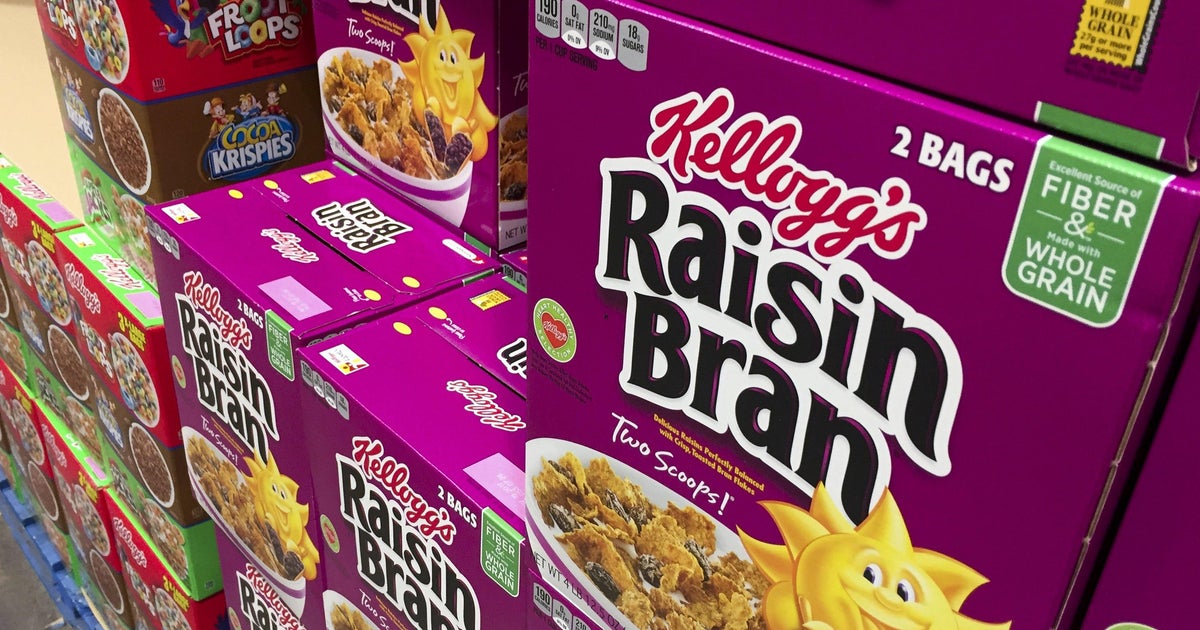

The FDA's proposed overhaul of its "healthy" food labeling is sparking a heated debate, pitting public health goals against the powerful lobbying efforts of the food industry. For decades, the agency's definition of "healthy" has been criticized as outdated and misleading, allowing products high in saturated fat and sodium to carry the coveted label. The FDA aims to rectify this by implementing a new, stricter standard, prioritizing nutrient density and limiting the amount of added sugars, saturated fat, and sodium. This shift is a direct challenge to the business models of many large food manufacturers. Companies that have built their brands around products that meet the current, lenient definition – often utilizing clever marketing and loopholes – now face the prospect of having their products disqualified from using the "healthy" label. This translates to potential losses in sales and market share, prompting fierce opposition from powerful industry players. Big Food's arguments center on several key points: They contend that the proposed changes are overly restrictive and would significantly limit the range of foods eligible for the label, confusing consumers and potentially harming smaller businesses that may struggle to reformulate their products. They also argue the new criteria are overly focused on specific nutrients, neglecting the overall dietary context and potential benefits of certain foods. Some even suggest the FDA's scientific basis for the changes is flawed or incomplete. Industry lobbyists are actively working to influence the final regulations, employing tactics including public relations campaigns, legal challenges, and direct engagement with lawmakers. The FDA counters that its proposal is driven by the need to provide consumers with clearer and more accurate information about the nutritional value of food, aligning with public health objectives to reduce diet-related diseases. They maintain that the current system allows misleading marketing practices and contributes to unhealthy dietary habits. The agency is likely to face intense pressure to compromise or alter the proposed changes, but ultimately, the outcome will determine whether the "healthy" label truly reflects public health priorities or remains a tool for corporate marketing strategies. The battle highlights the inherent tension between regulating industry for public benefit and the powerful influence of corporate interests in shaping food policy.

As the federal government moves to change rules for what foods can sport "healthy" labels, manufacturers are pushing back.
Some of the biggest makers of cereals, frozen and packaged food have submitted dozens of claims to the Food and Drug Administration objecting to new rules that would exclude food with high amounts of added sugar and salt from being labeled as "healthy" on packaging. Some manufacturers have even called the regulations unconstitutional, saying they violate companies' First Amendment rights.
The FDA last fall moved to update its requirements around what foods can use the word "healthy" on packaging — the first change since the rule was implemented in the 1990s. The proposed changes would leave out high-sugar, low-fat products that currently are allowed to use the healthy label today, such as fruit-flavored low-fat yogurts and Raisin Bran cereal.
That's unfair, many food companies gripe, complaining that the more rigorous nutritional standards would wrongly malign a range of popular foods. The rule "automatically disqualifies entire categories of nutrient dense foods," Kellogg's wrote in a February 16 comment on the agency's proposal.
General Mills goes further, arguing that the FDA's "overly restrictive" rule violates companies' rights to free speech.
"[T]he Proposed Rule precludes many objectively healthy products, including those promoted by the Dietary Guidelines, from engaging in truthful, nonmisleading commercial expression — and these overly restrictive boundaries for 'healthy' violate the First Amendment," the packaged-food giant writes.
General Mills has a slew of well-known , including Annie's, Betty Crocker, Cascadian Farm, Pillsbury and Yoplait, as well as cereals Chex, Cheerios, Choco Puffs, Cinnamon Toast Crunch, Raisin Nut Bran and Wheaties.
The window for submitting public comments on the proposed rules closed earlier this month. The FDA will now review the feedback, though the timing of a final rule is uncertain.
The Consumer Brands Association, whose members include Coca-Cola, PepsiCo, Hain Celestial and the Campbell Soup Company, took a similar tack, writing that "consumers have a First Amendment right to receive truthful information about products and manufacturers have a First Amendment right to provide it to them." The group estimated that 95% of foods currently on the market would not qualify for a "healthy" label under the government's new requirements.
KIND, the granola bar company, took issue with the FDA's proposed limits on added sugars in foods, saying they "created a barrier for fruit, vegetable, and protein food innovation" and would lead to more companies using artificial sweeteners in their products to mimic the taste of sugar-sweetened food.
"Criteria for use of 'healthy' should not be so restrictive that they allow only a very limited number of foods to qualify, because this could lead consumers to conclude that other nutrient dense food choices are 'unhealthy,'" the company added.
Conagra Brands, creator of the "Healthy Choice" brand of frozen meals, offered a blunt assessment: If it reinvents "Healthy Choice" to comply with the new rules, people won't buy it, the company .
"Conagra cannot continue to invest in 'healthy' innovation if we are not able to meet the necessary taste, eating trends and affordability our consumers expect. If the food does not taste good, people will not buy it," Conagra said.
Many "Healthy Choice" items have been criticized for their high amount of sugar or salt. For instance, the "Healthy Choice Sweet and Sour Chicken" meal contains 21 grams of added sugar — 42% of the current recommended daily value — while providing just 390 calories.
The American Frozen Food Institute said that restrictions on sodium would result in "nutritious frozen items being excluded due to a small amount of sauce that makes the item much more likely to be consumed."
"Consumers already know that whole fruits and vegetables are healthy and may not be consuming such products for a variety of reasons," the Institute said, adding that the FDA should be "meeting people where they are."
The Consumer Brand Association echoed this comment, writing: "Many consumers are constrained from preparing meals and snacks from 'plain' ingredients due to limited time, affordability, easy access to stores that sell these ingredients, kitchen resources, and cooking skills. And most consumers do not typically eat foods in a plain, unflavored form."
Despite this industry's grousing, many nutrition experts have come out in favor of the FDA's revised guidelines. Requirements for the "healthy" label haven't changed in the 28 years since it was first created, even as the public understanding of what's nutritious has evolved.
"We want to use policies that advocate for a healthier diet than we currently have, and that's why we believe the healthy claims should be allowed only for foods that are truly healthy," said Eva Greenthal, senior policy scientist at the Center for Science in the Public Interest. The CSPI mostly supports the new rules but says they allow too much refined grain and processed fruit.
Under the FDA's proposed rules, foods high in sugar, sodium or refined grains won't be banned; rather, food makers won't be allowed to label such products as "healthy," which can be a powerful marketing claim.
"There are currently some products labeled 'healthy' that contain insane amounts of sugars," Greenthal said.
That's a remnant of the low-fat craze of the early nineties, when processed-food manufacturers created a slew of supposedly low-fat snacks that contained high amounts of sugar and salt to compensate for the loss of taste. Since then, research has overturned the belief that all fat is bad for health while demonstrating the harmful effects of high sugar consumption.
Greenthal sees the revised FDA guidelines as mostly positive, although she doubts it will have much impact on Americans' eating habits.
"What we really need are mandatory labels that force companies to disclose information they otherwise conceal," she said. "Companies are very quick to tell us if a product is high in fiber or vitamin C, but not when a product is high in saturated fat, sodium, or sugar. These are the products that are linked to heart disease, high blood pressure and diabetes."
The CSPI recently petitioned the FDA to require food makers to prominently label these ingredients on the front of a food package.
"The FDA just needs to consider its mission, to protect public health, and use that as its guiding star as it faces industry pressure to prioritize industry interests over public health," Greenthal said.





